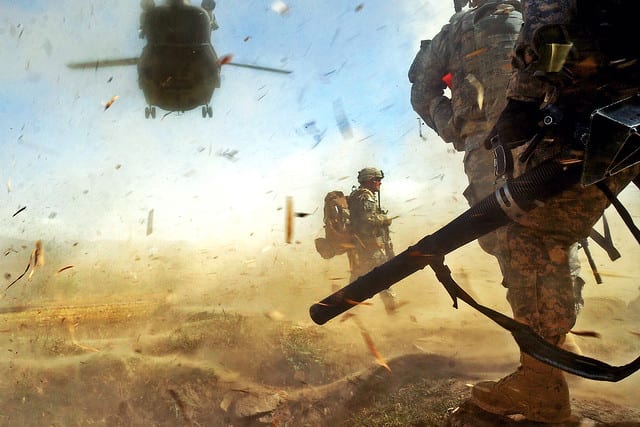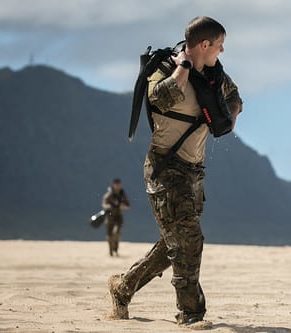The following excerpts come from Beyond Trauma by Dean Bonura.
…
Tangible and Intangible Losses
 Servicemembers suffer many losses in combat. And warriors always grieve their losses, particularly the loss of fellow warriors. While they may sometimes suffer the loss of life or limb or possessions, they almost always suffer an intangible loss. They may lose their confidence, sense of control, power, opportunities, or personal dignity.1 These are powerful aspects of grief and may include other losses such as loss of identity, innocence, peace, faith, meaning, and community.2 These may be losses about who the servicemember is or what she or he longs to be.
Servicemembers suffer many losses in combat. And warriors always grieve their losses, particularly the loss of fellow warriors. While they may sometimes suffer the loss of life or limb or possessions, they almost always suffer an intangible loss. They may lose their confidence, sense of control, power, opportunities, or personal dignity.1 These are powerful aspects of grief and may include other losses such as loss of identity, innocence, peace, faith, meaning, and community.2 These may be losses about who the servicemember is or what she or he longs to be.
While no tangible or intangible loss can be completely separated from another, such as the loss of a limb from social or economic loss, some losses are more directly related to spirituality. Among these are loss of identity, loss of faith, loss of peace, loss of meaning, and feelings of alienation, isolation, and loneliness—all of which might also be called existential losses. They are really inseparable and often intertwined with other issues, such as anger, guilt and shame. In the sections below, I’ll describe some of the losses that are more directly related to spirituality.
Loss of Identity and the Problem of Dissociation
Loss of identity has to do with changes in the way soldiers perceive themselves and the world around them.3 An individual’s capacity for reason, conscience, personal choice, or aesthetic sensibility, including imagination and intimacy, are so deeply affected by trauma that his or her identity is damaged or distorted. Sufferers lose touch with themselves or with their moral bearings: they have difficulty distinguishing between right and wrong.
…
Loss of Innocence
In Harper Lee’s Pulitzer Prize-winning classic To Kill a Mockingbird, Atticus’s children gradually learn that the world is harsh and full of prejudice. The world is cruel and unforgiving. The loss of innocence is the realization that the world does not operate according to one’s earlier assumptions. It is the sudden or gradual initiation into reality—the way the world really operates, the way the world is. It is a world in which there are no simple answers. War typically immerses the uninitiated into the reality of pain, sorrow, fear, and confusion.
…
Loss of Peace
 Frequently, the manifestation of trauma symptoms creates an inner turbulence that might be identified as a loss of peace. The loss of peace occurs at multiple levels—relational, personal, and spiritual. Servicemembers who are struggling to reintegrate into life and constantly encountering intrusive symptoms are not at peace. They are experiencing intense inner conflict. They are often in conflict with the people closest to them. Their world has turned upside down. Many are in a downward spiral, unable to extract themselves and unable to achieve a sense of balance.
Frequently, the manifestation of trauma symptoms creates an inner turbulence that might be identified as a loss of peace. The loss of peace occurs at multiple levels—relational, personal, and spiritual. Servicemembers who are struggling to reintegrate into life and constantly encountering intrusive symptoms are not at peace. They are experiencing intense inner conflict. They are often in conflict with the people closest to them. Their world has turned upside down. Many are in a downward spiral, unable to extract themselves and unable to achieve a sense of balance.
…
Loss of Faith
Traumatic events such as war frequently challenge core beliefs—not only beliefs about how the world should work or about what is good and true, but belief in God. Loss of faith usually manifests, as a violation of what is sacred to the person.8 Loss of faith, compounded by feelings of divine abandonment and even betrayal, is not uncommon among combat veterans.
…
Loss of Meaning
Making sense of one’s pain is central to healing for victims of trauma, and conventional therapies do not adequately address this issue.11 Loss of meaning is almost always associated with combat-related trauma and is especially egregious for combat veterans, many of whom suffer with a sense of persistent meaninglessness for years.12 Their struggle to make sense of trauma makes it difficult for them to comprehend God’s love or derive any positive meaning in their lives.13 Combat veterans want to know their wartime service counts for something: that it has some redemptive value or that the loss of life was worth the price.
…
The Loss of Community
The loss of community is the warrior’s inability to reconnect to friends, family, and associates. It is another form of alienation. Loss of community is aggravated by the fact that civilians do not understand or share the soldier’s experience. This is understandable. Soldiers are often reluctant to tell their stories. So barriers naturally exist between the combat veteran and a typical civilian community.
…
These excerpts pulled from Beyond Trauma by Dean Bonura.
Photos: Air-assault mission in Paktika province by the U.S. Army. Licensed under CC BY 2.0.
Ranger FRIES and SPIES training by the U.S. Army. Licensed under CC BY 2.0.







